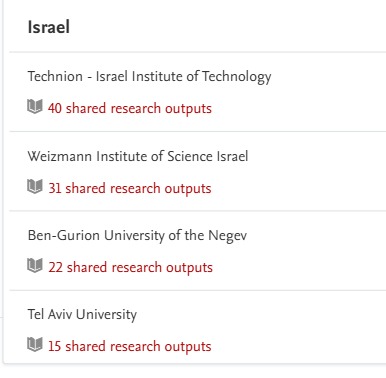Ever since the terrorist attack on Israel and the start of the war in Gaza, all kinds of university committees have scrutinised the academic collaborations with Israel. Tilburg University should suspend the ‘official’ ties, says an advisory committee led by Professor of Human Rights Nicola Jägers.
It only concerns the ‘institutional’ ties. It’s up to individual scholars themselves to decide whether they continue collaborating with Israeli researchers.
Incoming students welcome
The university shouldn’t send students or staff on exchange to Israel. Conversely, should any Israelis want to come to Tilburg despite the cutting of the ties, the university must welcome them with open arms: after all, they could “be tomorrow’s leaders, diplomats, or negotiators”.
The committee states the universities are “intertwined” with “the government, army, intelligence services, and military industry in Israel”. The universities are also not doing enough to distance themselves from the violence. “On the contrary, they make their expertise available to the Israeli government's policies and actions in Gaza.” Tel Aviv University, for example, is investing in drones “currently being used by the Israeli army in Gaza”.
Incidentally, the studies that Tilburg University scholars conduct with Israeli partners have little to do with this. Those are about mental health, ageing and colon cancer and are paid for by the European Union, the committee states. What the suspension of the collaboration should look like in concrete terms remains unclear.
Academic freedom
The committee explicitly doesn’t look at the partnerships from the perspective of academic freedom. Views on this concept differ widely and, moreover, other values also play a role in moral considerations.
The Executive Board of Tilburg University is still mulling over the advice. Since October of last year, there have been protests against the ties of Dutch universities with Israeli institutions in many cities. A few arts academies cut those ties in May, but universities first wanted to have them screened by ethics committees.
UvA lecturers on strike over ties with Israel and right to protest
At the University of Amsterdam (UvA), around eighty teaching and other staff have gone on strike for four days. They demand that the collaboration with Israeli institutions be suspended and that the rules for protests at the university be relaxed.
The education and research chapter of the Dutch Federation of Trade Unions (FNV) represents the staff members and had issued an ultimatum to the UvA that expired on Friday. The board is alleged to have refused to seriously negotiate about the demands with the union.
The UvA responded with surprise to the union’s ultimatum and intended actions: the university recently established new house and protest rules and sent a new assessment framework for collaborations with third parties to the representative bodies. “That is how democratic decision-making works at the UvA.”



Discussion